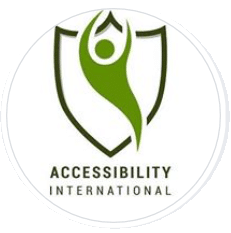ADA Lawsuits Threaten all Website Owners
You are probably asking yourself, since when has the Americans with Disabilities Act of 1990 applied to websites?
After all, the ADA was written before the Web became an integral part of our lives. However, courts and the Department of Justice have come to interpret the provision that states “all “public accommodations” provide facilities and equipment that are readily accessible to, and usable by, people with disabilities” should also apply to the digital world.
No doubt, this is a legitimate claim and all website owners should do everything they can to make their websites accessible to those with disabilities along with their physical properties.
Will Congress act in 2019
In 2019, when Congress now plans to provide clearer rules, everyone expects them to formally adopt what is already de facto – the Web Content Accessibility Guidelines (WCAG 2.0) provided by the international World Wide Web Consortium.
We can only hope they add a moratorium period to allow website owners to remediate, and then add a notification process that will give businesses a reasonable timeframe to remediate without penalty.
There is Little Time to Comply
“Website owners should be given notice and given a reasonable amount of time to make their website ADA and WCAG 2.0 compliant.”
However, this is not the case. There is no notification process, as the law firms engaging in these cases don’t care to. The lawyers have you at gunpoint. This is something Congress needs to address, however the earliest that will come will be 2019, if they choose to act at all.
Lawyers Take Advantage of the Unknown
In the meantime, there is money to be made by lawyers. We’re at the mercy of the courts, which so far are offering little. Website accessibility is a hot potato and everyone is very sympathetic to those with disabilities – as they should.
However, this has created a ripe environment for law firms to go after website owners.
Lawsuits Are an ATM for Lawyers
One law firm in Pittsburgh has created a semi-automated workflow that is flooding the country with demand letters and suits. Its a simple process. They run automated ADA compliance tests on websites which produces reports that flows right into a demand letter that threatens federal suit unless the terms of the attached draft settlement are agreed to.
In a word, it’s legal extortion. Businesses that receive the letters have little ground to dispute the claims and given the firm’s history in settling similar cases with biggies like Home Depot, Foot Locker and others, they’re not given much choice but to settle.
In settling they’re forced to pay all the firm’s attorney fees plus their own, and then be forced to audit and remediate by terms that the firm stipulates and agrees to. The business model is simple, easy to scale, and is easy to copy. This is what has so many people nervous.
Businesses Will Settle
A big problem is that businesses won’t see this coming. Most businesses will not want news spreading that they’re website isn’t ADA compliant, and will certainly not want to fight this in any court.
This is Bad PR. So businesses will try to keep this quiet and news about this will be slow to spread.
Enough with the doom and gloom.
There is Good News
The good news is that there is a lot you can do to avoid becoming a target. There are many firms across the country that provide ADA/WCAG compliance and remediation consulting.
They can provide auditing and guidance through the remediation process to make sure its done right.
You Can Help Yourself
There is a lot that businesses can do for themselves right away. There are a number of ADA WCAG testing tools, and here is guidance on ADA website remediation process.
This can be done in phases, with the first priority to lower your ADA violation profile so that these firms using automated scans, don’t pick you up.
This will then free you to approach the process of ensuring your site is universally accessible on your terms, on your timeframe, and inline with your budget.
Why am I so Sure About This?
First read this story in the Florida Record about Dion Snowshoes getting hit. This is a tiny mom & pop business based in Vermont. Yet the plaintiff firm is located in Florida. Everyone is a target.
But here is the real reason… First, consider how common ADA claims have been for physical barriers. Those required a “tester” to physically go to the location and record violations.
What’s different here is that these testers simply use free software to test for website ADA compliance. They can generate demand letters or suits from a computer anywhere – in volume – and at little cost.
Plus, there is no secret sauce or intellectual property rights to this business model. So the barrier of entry for copy-cat plaintiff firms is nil. And if it’s true that lawyers love money, this is a printing press.




